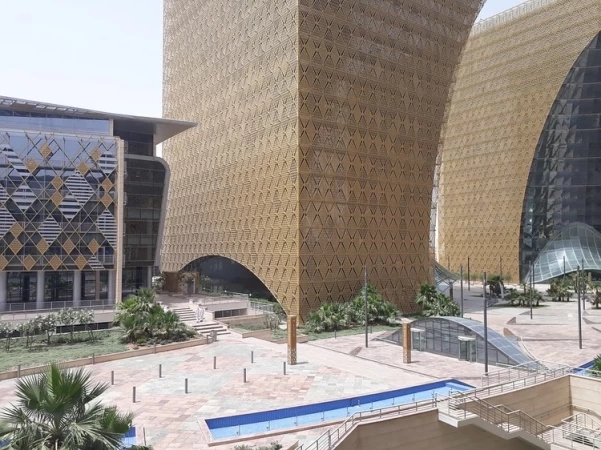
This is a guide on how to start a small business in Riyadh. In case you didn’t do your homework, here are some reasons why you should take your chances. Riyadh is the capital of Saudi Arabia, with 6.5 million people living in it. That is about 20% of Saudi Arabia’s population. Saudi Arabia is the 18th largest economy in the world and the largest economy in the Middle East. It owes its economic strength to the export of petroleum. Furthermore, it has a leading role in the OPEC as it controls one-fifth of the world’s oil reserves. The private sector mostly employs foreigners, 80% of the workforce comes from outside Saudi Arabia.
Firstly, the fact that is important to know is that Saudi Arabia has become a member of the WTO (World Trading Organization) recently. This liberalizes their market and opens it up for foreign investments. According to the World Bank report, the Saudi state is 92nd among 190 world economies on how easy it is to open a business there. There are some strict regulations and rules that are present in the culture. With that in mind, the Saudi government is reforming its economic system. These reforms are aligning with their membership in WTO, to make those two more compatible. For example, a foreign investor can now own even 100% of businesses in some sectors. Or, the process for getting a business license is now shorter by almost 90%.
Another important segment is high unemployment. Although unemployment is always a nice opportunity, in Riyadh it may also come as a problem. As Saudi Arabia is growing so is its population, young people below 16 years are almost 40%. That is why almost 80% workforce are foreigners. The government is investing a lot in education, so the population is more skillful and thus, more suitable for participation in the private sector. But unfortunately, it takes time and in today’s world, everything needed to happen yesterday. But the youthful workforce is more under the influence of social media which opens up even more opportunities.
Western workers are usually well qualified – they wouldn’t get far if they weren’t – and these qualifications are carefully examined by government apparatus. Therefore, western expatriates tend to occupy senior positions, with appropriate salaries and perks. Workers from south-east Asia and the Indian sub-continent (they are called ‘Third Country Nationals’ or ‘TCNs’) work on unskilled and semi-skilled positions.
This is very important for potential investors/business owners to pay attention to. Basic knowledge about Saudi culture can, in most cases, make a difference between success and failure. Especially during, for example, negotiations. On the other hand, although the country itself is very conservative, if you show respect, executives and government officials are open to communication.
Gender segregation is something that you will come across. Generally, women can't drive, need to wear long skirts and sleeves, without cleavage. There are separate rooms in most restaurants where women eat with their husbands. It is very rare to see Muslim men shake hands with women or make any body contact. Contrary to that, Saudis tend to act differently when accompanied by people from other religions.
Riyadh’s Chamber of Commerce and Industry is a place to start. They can advise you about the types of businesses that are subsidized. Also, they are smart enough to recognize and support prosperous ventures.
Market research and going through the whole process is much easier if you have a legal office that will protect your interests. With that in mind, we can say that corporate law is similar to “western” countries. Another option is buying an existing business which is a simpler process. Consequently, you will need much more investment capital. Although, that means more help from the Chamber of Commerce. They also have an interest in upgrading current businesses into more successful ones.
The Saudi Arabian General Investment Authority (SAGIA) is issuing business licenses.
The two most common types for foreign investors are the limited liability company (LLC) and the foreign office branch.
There are a number of investment categories that companies operate in, each with their own separate regulations:
Service investments – public transport, manpower recruitment agencies, domestic labor hiring, and education sector
Industrial investments – production processes of importing raw materials, production lines of manufacturing products for export or local sale. Quality storage for your goods in Riyadh is something that you must also think of.
Commercial investments – wholesale and retail activities in the Saudi market.
Entrepreneurial investments – entrepreneurs who wish to establish start-up enterprises accredited by Saudi universities
Real estate investments – investment in property
Engineering consultancy offices – consultancy-related investments and ventures
Riyadh is one of the fastest-growing cities in the world due to Saudi Arabia’s petroleum exports. It is expected that there will be 30 million Saudis in 2020 - 50% are under 25 years old. The Saudi Kingdom is trying to invest heavily in order to develop other sectors. Major projects are still focusing on oil, gas, and petrochemicals. But investments in infrastructure are not falling behind. Communications, entertainment, transport, construction, and social infrastructure are ideal opportunities for small businesses over the next 20 years.